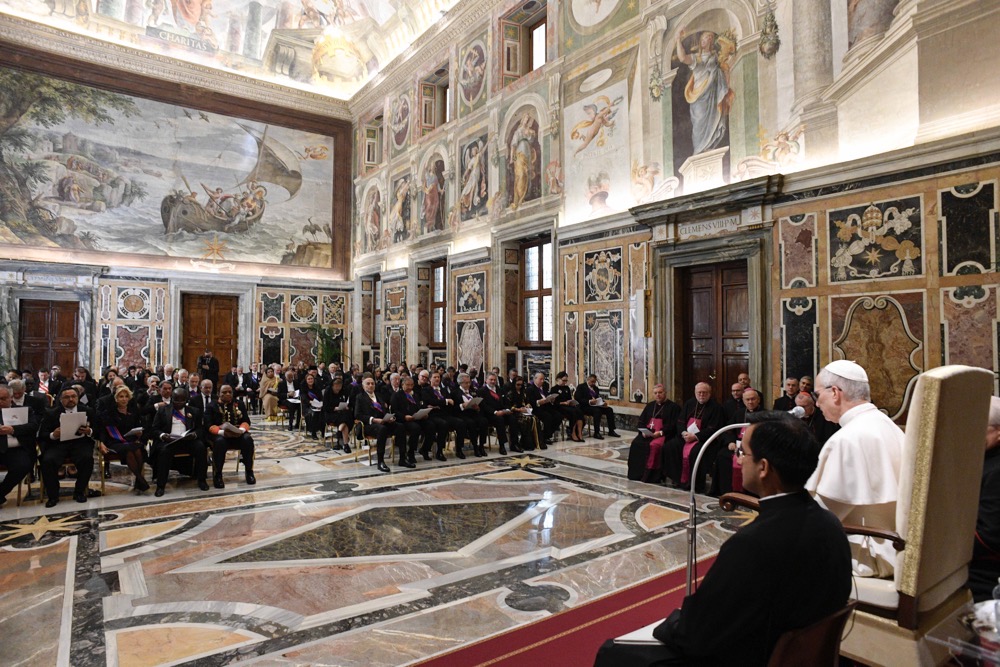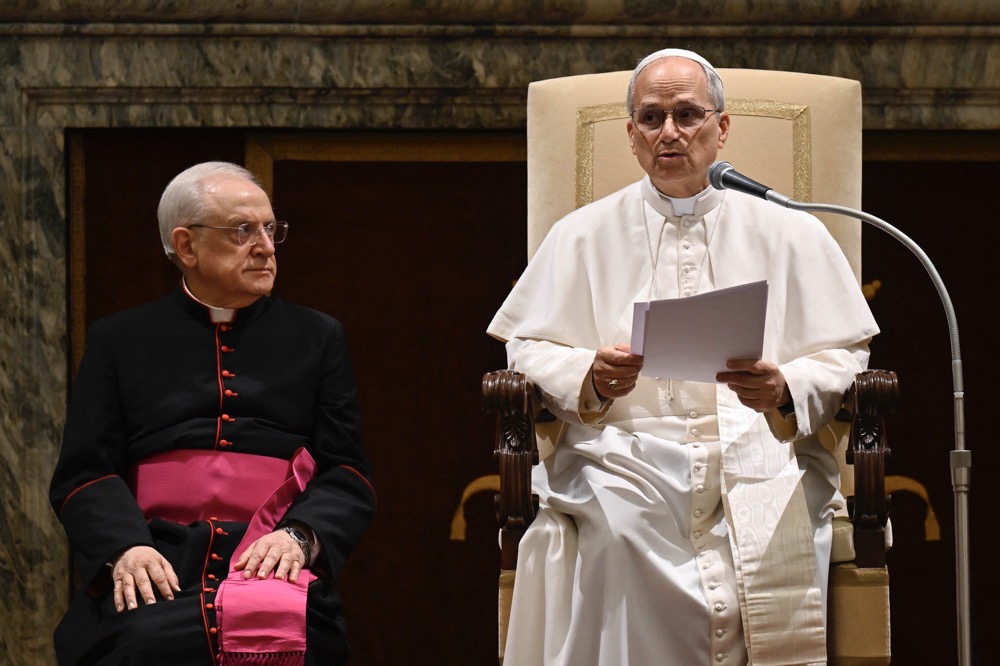GAZA CITY: Hamas will forgo its usual handover ceremony when it returns the bodies of four Israeli hostages on Wednesday night, with Israel expected to free more than 600 Palestinian prisoners in exchange, the militant group said.
The swap will be the final one under the first phase of a fragile Gaza ceasefire deal that went into effect on Jan. 19.
Hamas’s armed wing said Wednesday that under the “framework of the deal, the Ezzedine Al-Qassam Brigades have decided to hand over the bodies of four hostages tonight.”
A Hamas official told AFP that in return, Israel would release 625 Palestinian prisoners.
The official also said the return of the four bodies would take place in private “to prevent the occupation from finding any pretext for delay or obstruction.”
Israeli Prime Minister Benjamin Netanyahu’s office confirmed the handover was set for Wednesday night, “without Hamas ceremonies.”
Hamas has conducted past handovers in public spaces, with hostages paraded on stage, given certificates and gift bags, and often made to speak in front of crowds.
The spectacles — particularly one in which coffins carrying the remains of dead hostages were displayed — have drawn outrage in Israel, which halted the planned release of prisoners during last week’s exchange to protest what it called the “humiliating ceremonies.”
A second Hamas official familiar with the exchange told AFP that the Palestinian prisoners whose releases were delayed would be freed as soon as the bodies were returned on Wednesday.
“Hamas will hand over the bodies of the four Israeli prisoners by midnight, and in return, Israeli authorities will release the Palestinian detainees and prisoners from the seventh batch simultaneously,” he told AFP.
Another, smaller group of Palestinian women and minors due to be freed in return for the bodies would be released after Israeli authorities had verified the dead hostages’ identities, he added.
“This arrangement was made based on a proposal presented by the mediators, which Hamas agreed to,” the official said.
The Israel Prison Service said Wednesday that it was “making preparations for... releasing imprisoned terrorists in accordance with the agreement for the return of the hostages.”
It did not, however, give any indication of the timing of the releases.
The ceasefire has largely halted the war sparked by Hamas’s October 7, 2023 attack on Israel, and seen 25 hostages released alive so far in exchange for more than 1,100 prisoners.
There have been sporadic incidents of violence, however.
The Israeli military said it carried out air strikes on several launch sites inside Gaza after a projectile was fired from there on Wednesday, though the munition fell short inside the Palestinian territory.
In Washington, President Donald Trump’s top envoy to the Middle East said Israeli representatives were en route to talks on the next phase of the ceasefire.
“We’re making a lot of progress. Israel is sending a team right now as we speak,” Steve Witkoff told an event for the American Jewish Committee.
“It’s either going to be in Doha or in Cairo, where negotiations will begin again with the Egyptians and the Qataris.”
The first phase of the deal is supposed to end on Saturday, but negotiations for the next stage — which were due to begin in early February — have not yet started.
Hamas has said it is ready to release all the remaining hostages “in one go” during the second phase.
On Sunday, the group had accused Israel of endangering the Gaza truce by delaying the release of Palestinian prisoners.
On Wednesday, thousands gathered in Israel for the funeral of Shiri Bibas and her sons, who were killed in captivity in Gaza and had become symbols of the country’s hostage ordeal.
The Israeli parliament held a minute of silence to mourn their deaths, as well as those of other victims of Hamas’s October 7, 2023 attack.
“Yesterday, the funeral of Oded Lifshitz took place; today, the funeral of Shiri, Kfir and Ariel Bibas is taking place. We remember all the victims of October 7. We remember, and we will not forget,” said speaker Amir Ohana.
Hamas and its allies took 251 hostages that day, with 62 still held in Gaza, 35 of whom are dead.
Israel vowed to destroy Hamas after the attack, the deadliest in the country’s history and has made bringing back all the hostages a central war aim.
The attack resulted in the deaths of more than 1,215 people, most of them civilians, according to an AFP tally of Israeli official figures.
Israel’s retaliation in Gaza has killed more than 48,348 people, according to the health ministry in the Hamas-run territory, figures that the United Nations considers credible.
At Bibas family funeral on Wednesday, father Yarden Bibas, who was abducted separately on October 7 and released alive in a previous exchange, apologized to his late wife and sons.
“Shiri, I’m sorry I couldn’t protect you all,” he said in his eulogy, his voice cracking.
The Israeli national anthem was played as the funeral convoy passed through a crowd of mourners in the central city of Rishon LeZion, where the remains of the three hostages had been prepared for burial.
“The Bibas family, I think, is like the symbol of everything that happened to us since October 7,” said retired teacher Ayala Schlesinger Avidov, 72, visibly emotional as she spoke to AFP.
“The two babies and the mother that did nothing to the world and were murdered in cold blood.”
Hamas says to hand over four Israeli hostages’ bodies in private
https://arab.news/5nymd
Hamas says to hand over four Israeli hostages’ bodies in private

- The swap will be the final one under the first phase of a fragile Gaza ceasefire deal that went into effect on Jan. 19
- Hamas’s armed wing said Wednesday that under the “framework of the deal, the Ezzedine Al-Qassam Brigades have decided to hand over the bodies of four hostages tonight“

































